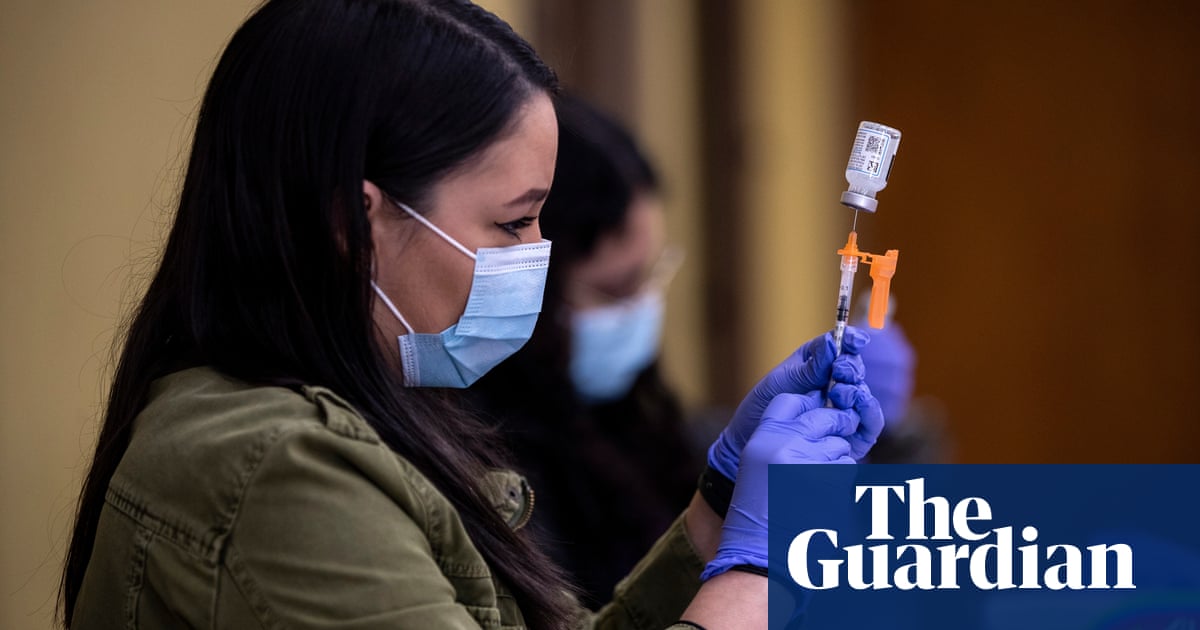
A retooled single-dose Covid “booster” shot is expected to hit pharmacy shelves just as cold and flu season is ramping up. This week, the Food and Drug Administration (FDA) authorized new shots for emergency use, and a panel of experts at the Centers for Disease Control and Prevention (CDC) recommended nearly everyone in the US get one.
But just how soon should people in the US head to their local pharmacies for the new vaccine? And, after so many people have already been vaccinated or sickened by Covid, how urgent is it to get another dose? Below, we fill in details of the agencies’ latest recommendations.
What exactly did the FDA authorize?
The FDA authorized updated versions of the Pfizer and Moderna mRNA vaccines. As Covid continues to circulate, the virus mutates, a lot like the influenza virus. For that reason, pharmaceutical companies have developed a booster to target one of the most widely circulating strains of Covid-19 this season, the XBB. 1.5 variant.
This fall is the first time adults will be able to get the flu, respiratory syncytial (RSV) and Covid-19 shots, all of which protect against commonly circulating respiratory illnesses. This year’s Covid booster is targeted to the XBB. 1.5 variant.
Who should get the new booster shot?
When the FDA authorizes a new vaccine, the CDC makes recommendations on who should get them and when. In short, the agency recommended this booster for everyone older than six months – with a couple of caveats.
Anyone who recently had Covid-19 can wait three months to get the updated booster, and anyone who was recently boosted should wait two months before getting the new shot. The agency’s expert panel placed special emphasis on some groups getting the new shot.
“The most important are those at greatest risk for severe illness,” said Dr Peter Hotez, a vaccinologist and dean of the National School of Tropical Medicine at Baylor College of Medicine in Houston, Texas.
The people at highest risk are those older than 65; with health conditions such as obesity, diabetes, high blood pressure, chronic lung or heart disease; and those who may be immune-compromised, such as those on immune suppressant medication and people who are pregnant.
If I am already vaccinated or had Covid, why should I get another shot?
Even though most people in the US will have some immunity to Covid-19 through prior infection or vaccination, the likelihood of catching Covid again increases over time as new variants circulate and immunity from prior vaccines wanes.
The agencies hope that providing updated vaccines will help prevent serious illness, the sort that might lead someone to go to the hospital or even lead to death. In addition, data shows getting a Covid-19 vaccine can help reduce the chance of getting so-called long Covid, in which symptoms of fatigue and fog can drag on for months. As a result, the agencies have recommended broad swaths of the American public get the shots.
“I’ll be first in line,” to get the updated shot, said Hotez, who supports the CDC’s broad recommendation. “Even though the amount of hospitalizations will not come anywhere close” to the waves of 2021 and 2022. “In terms of making an individual health choice, I think there’s still vulnerability there.”
How long does immunity from the new shot last?
Peak protection should come a couple weeks after the dose, and last a few months. After that time, immunity declines, either because of new circulating variants or because of waning vaccine efficacy (according to materials from this week’s meetings, it’s difficult for experts to parse the exact answers in the available data).
Do all experts agree with the CDC’s recommendation?
Although a panel of CDC experts voted in favor of the new recommendations, not all experts agree on the strategy. Dr Paul Offit, a virology and immunology expert at the Children’s Hospital of Philadelphia and a member of the FDA’s expert panel on vaccines, argues the government should focus on the nation’s most vulnerable groups.
In 2022, just 43% of people older than 65 – a group at high risk of hospitalization from the disease – got a booster dose. That group in particular should be the focus of a booster campaign, he said.
“My feeling on this, and it’s a feeling that is shared by health advisers in many other countries, is the goal of this vaccine is to prevent serious illness,” said Offit. “Then, the question becomes who is most likely to suffer serious illness? Who is at greatest risk?”
The people at highest risk are those older than 75, with underlying health conditions (such as those mentioned above) and the immune-compromised, according to CDC data. With narrow exceptions, such as nursing home workers and those living with the immune-compromised, the “best strategy is to target those of greatest risk”, said Offit.
Will I have to pay for the new vaccine?
Probably not. Health insurance will cover the cost of the booster dose for most Americans. For those who do not have health insurance – about 27 million Americans, according to the CDC – the federal Bridge Access Program will cover the cost of shots through 2024. For those who pay cash, Pfizer and Moderna have set the list price of their vaccines at $120 and $129 respectively.
The new Covid-19 booster shot: what you need to know - The Guardian
Read More
Bagikan Berita Ini

















0 Response to "The new Covid-19 booster shot: what you need to know - The Guardian"
Post a Comment